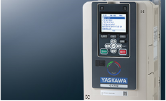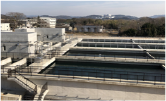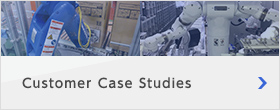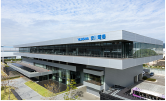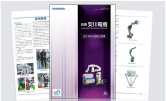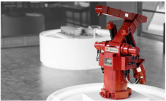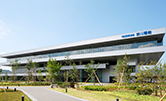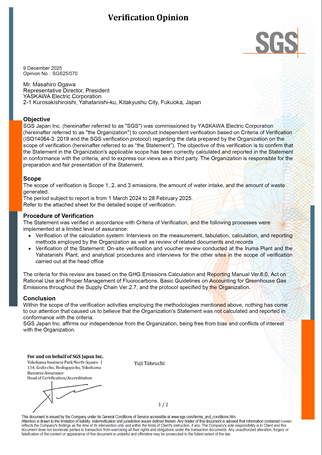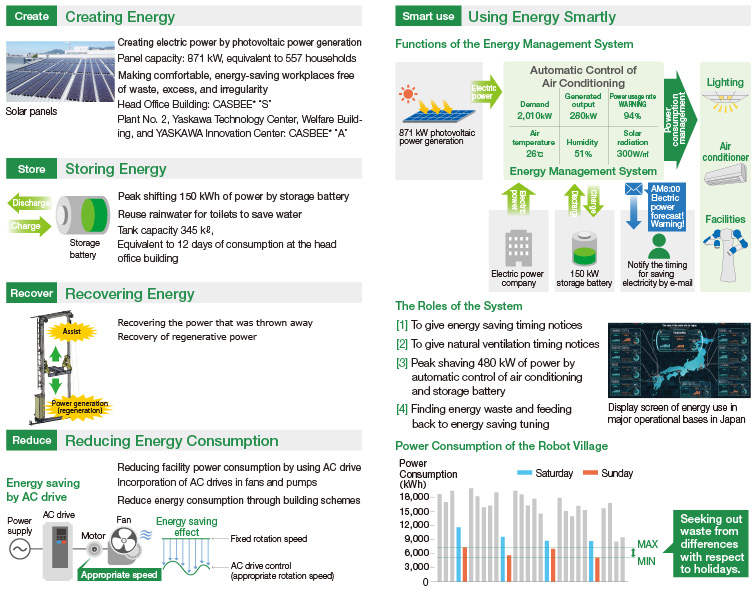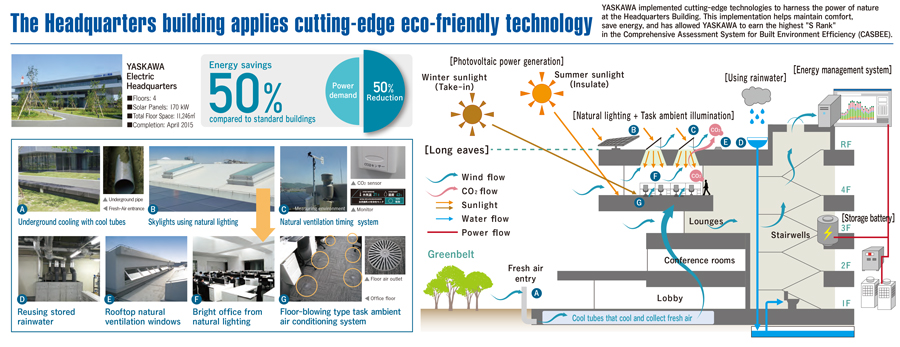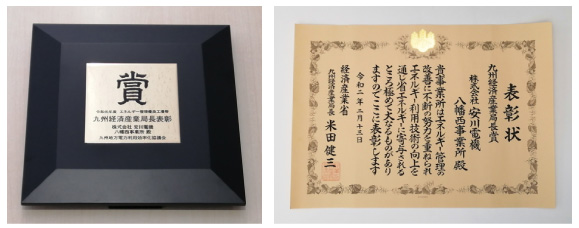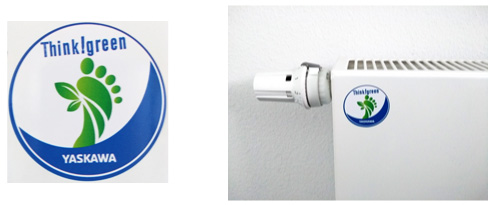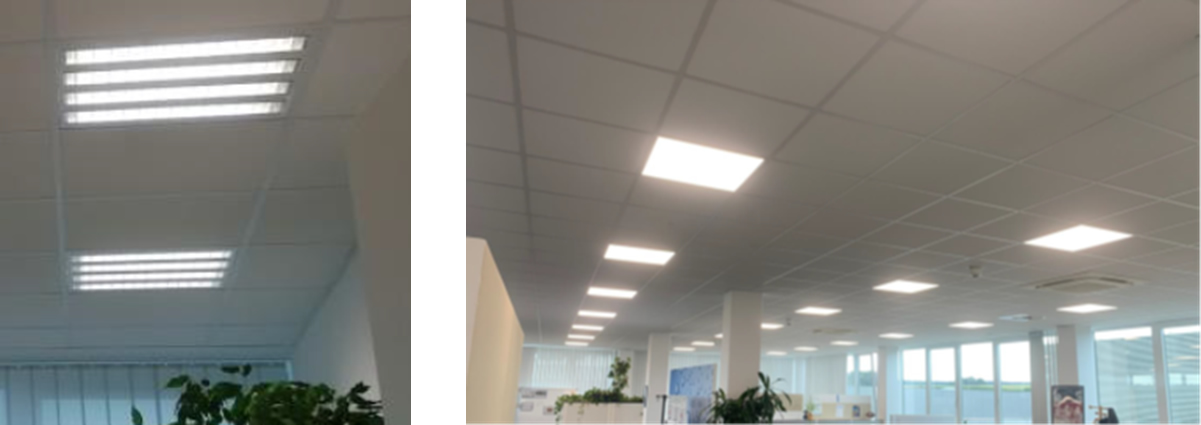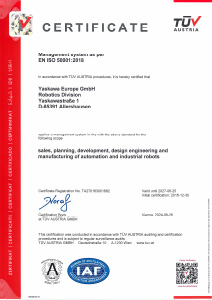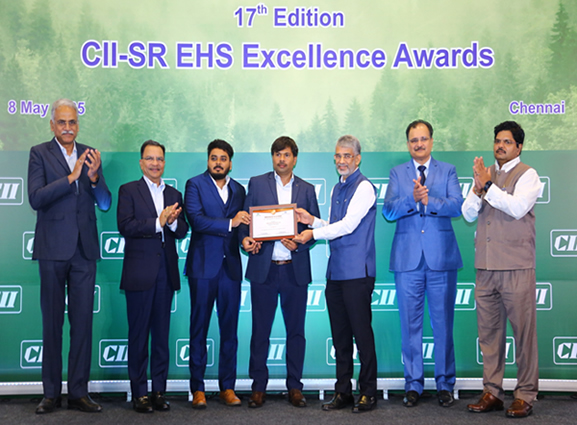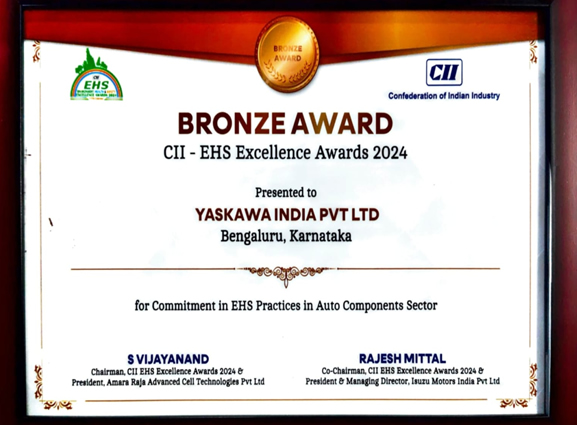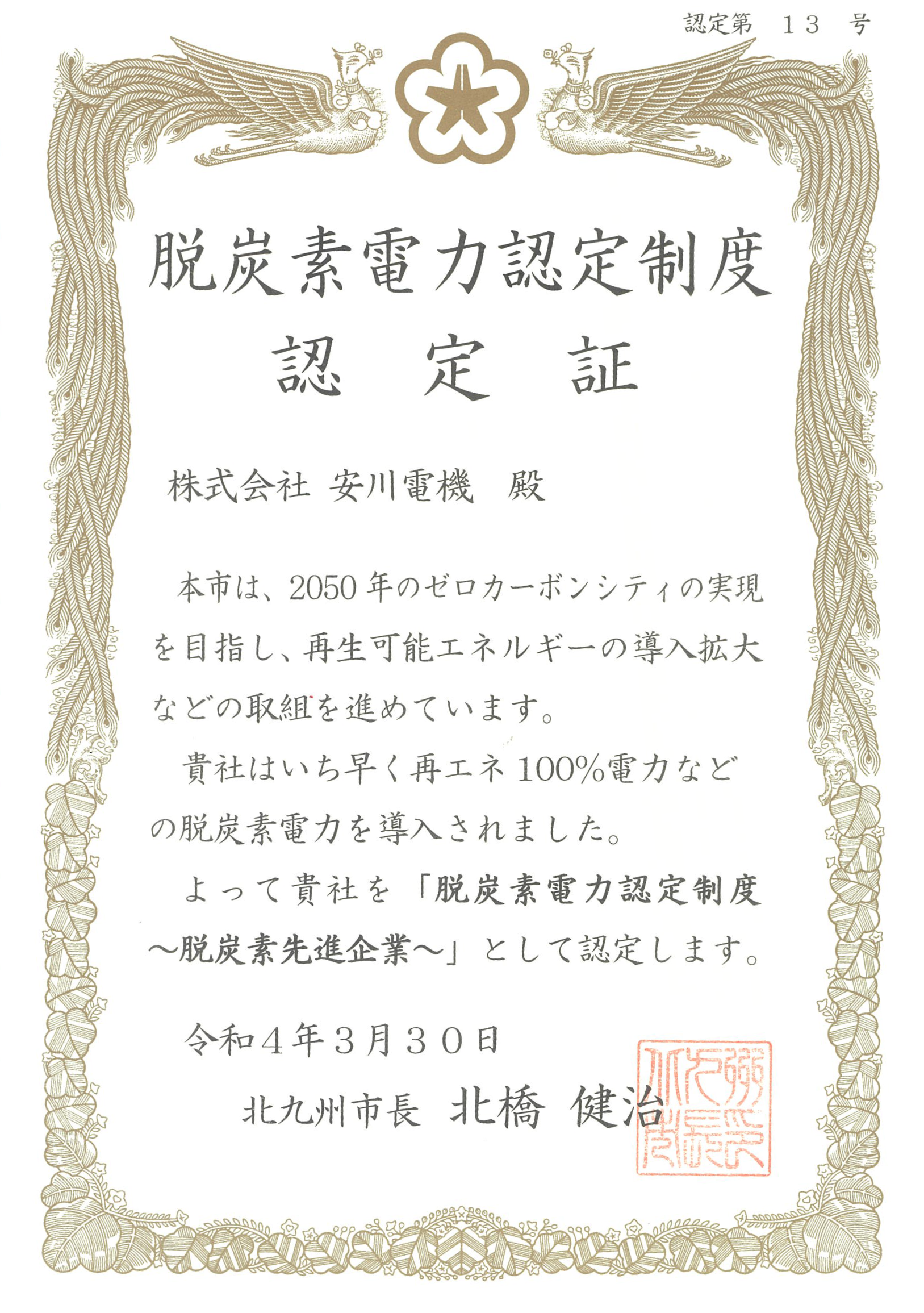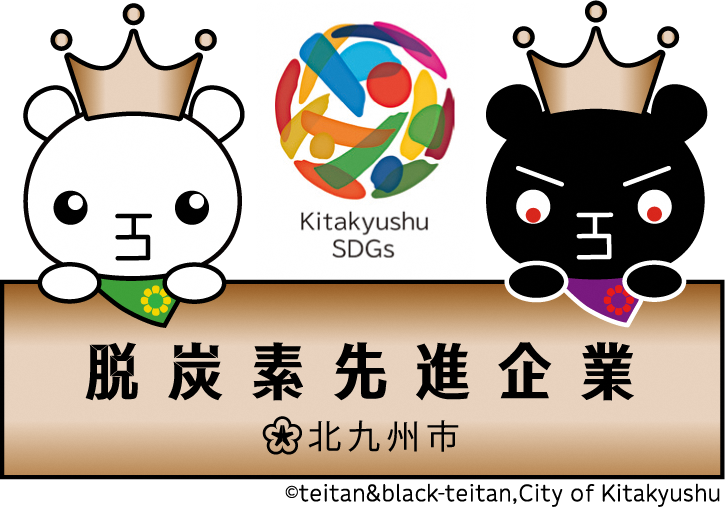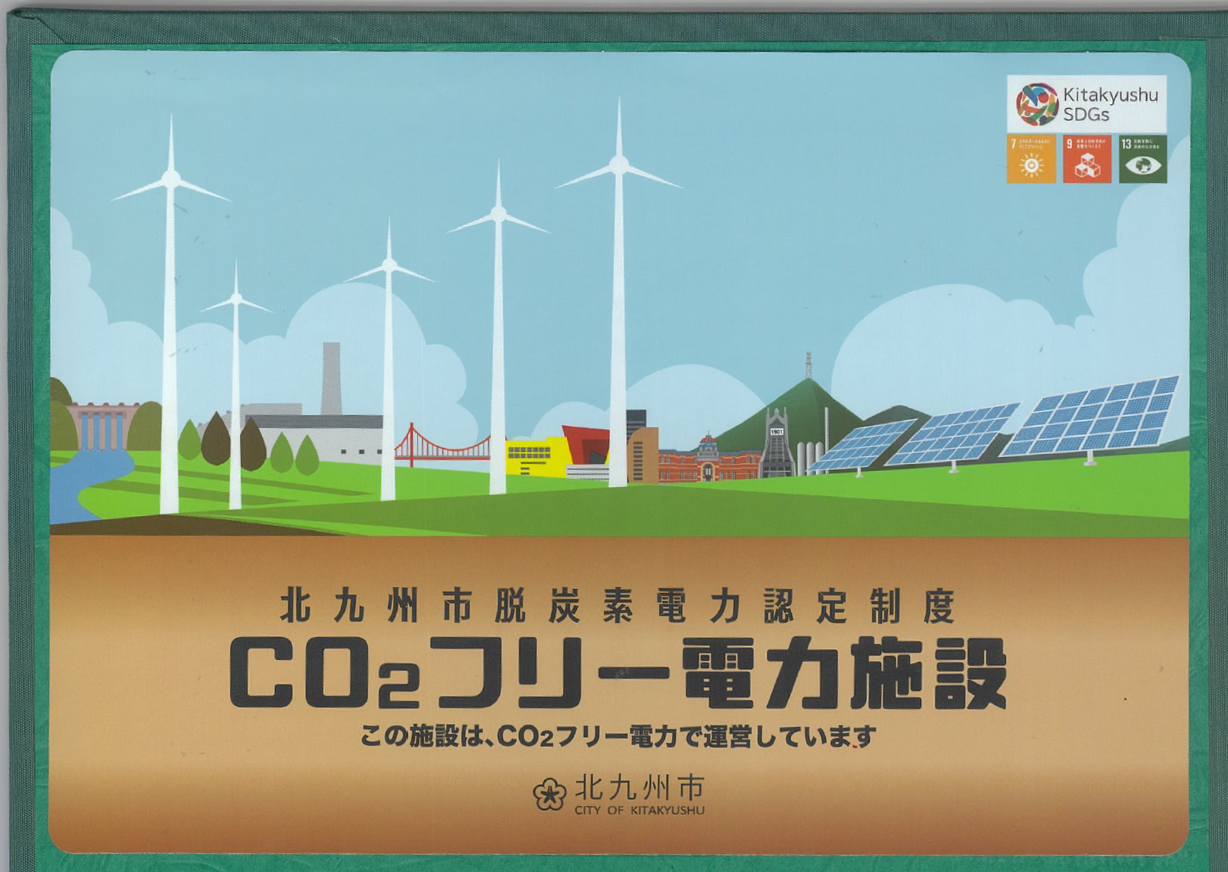Environmental management
Yaskawa Group Environmental Policies
We established the Group Environmental Policy in fiscal 2015 in order to accelerate global environmental initiatives, including those of overseas affiliates.
Environmental Philosophy
Based on the Management Principles of the Yaskawa Group, we recognize that the conservation of the global environment is one of the most important issues for all humankind. In every stage of our business operation, we contribute to the realization of a sustainable society through our proactive environmentally conscious actions.
Environmental Action Guidelines
- Participation by everyone
We strongly believe that we all should participate and take responsibility in order to achieve realization of biodiversity conservation, and a low-carbon and recycle-based society.
- Environmental contribution by innovative technologies
For the future prosperity of society, we will contribute to the improvement of the global environment through our products and services developed by technological innovation that will be useful in a wide range of applications in communities worldwide.
- Environmental consideration of products and services
We strive to reduce the environmental impacts of our products and services, for their entire life-cycle, from research and development, product design, procurement, manufacturing, distribution and usage through to end-of-life handling.
- Aiming for future-oriented goals and objectives
We aim to heighten social and environmental excellence not only by complying with applicable environmental laws and regulations but also by establishing our own future oriented goals and objectives. We will continue to improve our environmental management and to endeavor to minimize environmental risks.
- Improvement of environmental awareness
We strive to improve environmental awareness among all of us by education and enlightenment about our relationship with the environment from a broad perspective so that each of us can independently implement the environmental activities.
- Information disclosure and communication
We are committed to disclosing information about our environmental activities and communicate proactively and openly with stakeholders for deep mutual understanding.
Organization for Environmental Promotion
Yaskawa and affiliated companies have continued to promote the environmental programs in accordance with group-wide policies and implementation plans that have been deliberated and decided by the Company-Wide Environmental Promotion Committee.
The Group’s Environmental Management
The Group Environmental Policy is incorporated into the environmental targets of each affiliated company, and environmental activities are carried out in accordance with the business contents.
Yaskawa began acquiring ISO 14001 (Environmental Management System) certification for its manufacturing facilities in 1998, and we acquired integrated certification for our manufacturing facilities in Japan in 2014*1.
We are also expanding the scope of certification to include Group companies, and we will continue to promote environmental management globally based on ISO 14001.
In FY2024, Yaskawa Electric acquired ISO 14001 certification for all five of its production sites, and across the Group, 16 out of 27 sites acquired certification.
ISO 14001 Certification Status (FY2024)
*1 Scope of ISO 14001 at Yaskawa: All stages of manufacturing activities, products, and services in the departments of the Iruma Plant, Yahata-nishi Plant, Nakama Plant, Yukuhashi Plant, and Yahata-higashi Plant and in affiliated companies on the premises of those plants.
List of ISO 14001 Certification for Group Companies
Compliance with Environmental Regulations
In FY2024, one product model was found to be non-compliant with the RoHS directive.
We promptly reported the issue to customers and regulatory authorities, took legally appropriate action, and completed corrective measures.
On-Site Check of Waste Disposal Companies
With the focus set on the responsibility of the waste generator, we perform, by use of our common audit check sheets, on-site checks of waste collection/transport companies and disposal companies under contract with our production plants.
Until FY2024, none of our contractors have violated laws and regulations. We will continue to perform these checks in the future.
Environmental Communication
The Yaskawa Group discloses information on its environmental activities and actively communicates with stakeholders to deepen mutual understanding. We are also disseminating information on our environmental initiatives and views widely through our integrated report and website, and will continue to strengthen our efforts.
Disclosure of Information to Third Parties
We disclose information on the Yaskawa Group’s initiatives and environmental impact data to a variety of stakeholders, including government agencies and industry groups, as well as through CDP’s survey on climate change and water security and “SDGs management“ survey conducted by Nikkei Research.
To improve the reliability of the calculated greenhouse gas emissions (Scope 1, 2, and 3), we receive third-party verification by SGS Japan Inc.
Environmental-Friendly Features of Robot Village*2
The Yahata-nishi Plant “Robot Village” in Kitakyushu has been implementing the “Clean Power 100 Project,” an initiative to reduce CO2 emissions from electricity to zero by FY2021.
Robot Village focuses on five perspectives on energy: “create,” “store,” “recover,” “reduce,” and “smart use,” and also actively incorporates the Yaskawa’s own environmentally friendly technologies.
At the Yaskawa Technology Center, which opened in the spring of 2021, in addition to the building’s superior environmental performance, we are also working to improve the efficiency of energy use by introducing environmentally friendly technologies, including the installation of more than 70 AC drives, matrix converters, IPM motors, and other Yaskawa environmentally friendly products, as well as solar power generation.
As a result of advancing the adoption of CO2-free electricity, we achieved zero CO2 emissions from electricity consumption at the Robot Village.
The environmental technologies used in the Robot Village are explained in an easy-to-understand manner to visitors of the Yaskawa Innovation Center.
In-house technology in the Robot Village
Received the Energy Conservation Grand Prize
Robot Village was awarded the Energy Conservation Center Japan chairman’s prize in the 2015 Energy Conservation Grand Prize. In the products and business model category, it also received the minister’s prize, Ministry of Economy, Trade and Industry, for Yaskawa Matrix Converter U1000.
Other awards and prizes
The head office building of Yaskawa Electric received the FY2017 Carbon Neutral Grand Prize*3.
Even after completion of the project, energy conservation operations have been thoroughly carried out and a 76% energy cut was implemented in comparison to standard buildings.
The head office also received the Kyushu Bureau of Economy, Trade and Industry’s Director General Award at the 2019 Excellent Energy Conservation Factory & Building Awards competition for its everyday energy-saving activities.
*3 An award system has been implemented annually by the Japanese Association of Building Mechanical and Electrical Engineers. It aims to contribute to building a “carbon-neutral” society in which CO2 emissions by buildings are reduced to nearly zero.
Commitment to environmental promotion (Germany)
YASKAWA EUROPE GmbH ROBOTICS DIVISION in Germany obtained ISO 50001 certification in December 2016. We have improved energy performance by implementing energy-saving measures.
YASKAWA EUROPE GmbH ROBOTICS DIVISION uses an energy management system that delivers data on energy use and efficiency in a visual format. We save energy by reviewing work procedures and eliminating redundant processes.
In FY2024, we constructed an additional building that uses district heating (waste heat from a biomass plant) in the same way as the existing buildings. Since June 2024, we have obtained a certificate from the district heating supplier certifying a CO2 emission factor of 0 gCO2/kWh. The added building is also equipped with a DALI (Digital Addressable Lighting Interface) control system that enables high energy efficiency through dimming in accordance with room usage and requirements.
We are also undertaking “Energy and Environment Campaign” to raise employees’ awareness on environmental conservation and energy savings. We created a sticker featuring the catchphrase “Green YASKAWA Footprint” for the campaign.
Our first target was to reduce the inflow of outdoor air into heated rooms. We attached stickers near thermostats for radiator heaters to raise awareness of temperature settings.
The next target we set was to reduce paper use in printing and energy use in lighting, attaching the stickers to printers and light switches.
By FY2024, we replaced fluorescent lamps in our offices with LEDs. This not only improved brightness and comfort in the workplace, but also reduced power consumption by more than 50% even when illumination levels were increased.
To optimize energy consumption for air conditioning, we improved the operating program of the central control system to prevent unnecessary operation and introduced a system that enables individual area adjustments via remote control. This enables air conditioning management that combines energy conservation with comfort.
These initiatives have been effective in raising employees’ awareness on energy conservation. Since FY2020, we have installed monitors that show the real-time status of energy consumption collected through our energy management system. We are also continuously expanding the collection of real-time data from other areas.
By raising employees’ awareness on energy conservation, we aim to further reduce our environmental impact.
ISO50001 is the international standard for energy management and is designed to help organizations in all fields and sizes to manage energy use and improve energy performance continuously.
Commitment to environmental protection (India)
In May 2025, Yaskawa India received the Best EHS Practices Award at the National EHS (Environment, Health & Safety) Excellence Awards 2025, hosted by the Confederation of Indian Industry (CII).
This award recognizes Yaskawa India’s world-class EHS practices and outstanding efforts in sustainability, health, and workplace safety.
Among over 450 participating companies, Yaskawa India earned high marks through the following evaluation process.
– A two day on-site review by CII expert auditors
– A scoring system based on innovation, legal compliance, and social impact
- The following key initiatives led to the award.:
- 1.Energy efficiency and CO2 reduction: With the U1000 test bench, energy consumption during motor testing was reduced by 30% and annual CO2 emissions were reduced by more than 250 tons.
- 2.Zero waste to landfill policy: Achieved 100% reuse of waste through recycling, upcycling, and waste-to-energy conversion. Plastic neutrality was also achieved.
- 3.Industry-leading safety measures: Recreated high-risk environments at the Safety DOJO experiential training facility. Reduced disaster risk through predictive analytics.
- 4.Commitment to environment and safety beyond standards: Maintained an air quality that is 20% better than legal standards. Saved 1.5 million liters of water annually by using a closed-loop water circulation system.
Additionally, a comprehensive employee wellness program has been introduced, covering ergonomics and mental health.
This award is a testament to the dedication of every Yaskawa India employee and reflects our unwavering commitment to “Safety First”.
We will continue to fulfill our responsibilities to people, the planet, and productivity.
Certified as Leading Company in Decarbonization under the “Kitakyushu Certification System for Decarbonized Energy” (Yahata-nishi Plant and Kokura Plant)
On March 30, 2022, our Yahata-nishi Plant and Kokura Plant, which are located in Kitakyushu, were certified under the “Kitakyushu Certification System for Decarbonized Energy” as a Leading Company in Decarbonization for their early adoption of CO2-free energy.
Aiming to become a zero carbon city by 2050, Kitakyushu promotes the use of renewable energy through its Kitakyushu Model for 100% Renewable Energy that aims to have all public facilities make the switch to 100% renewable energy by 2025. The main purpose of this certification system is to accelerate the decarbonization trend by urging companies in the city to join in as well.
Certified companies receive perks such as a “certification sticker and logo.”
-
Certificate
-
Certification Logo
-
Certification Sticker
Participation in External Initiatives
Participation in the Japan Climate Initiative
We are a member of the Japan Climate Initiative (JCI), a network of companies, local governments, and organizations working toward the realization of a decarbonized society in Japan.
Established in 2018, JCI now comprises more than 800 organizations and serves as a climate action network. JCI has led discussions on decarbonization by making policy recommendations to the Japanese government, such as introducing carbon pricing in line with international norms and setting an ambitious 2035 target aligned with the 1.5°C goal. Through our participation in JCI, we will further strengthen our efforts to reduce our environmental impact and help build a sustainable society.
Participation in the CMP Consortium
We are a member of the CMP Consortium. The CMP Consortium operates the Chemical & Circular Management Platform (CMP) and chemSHERPA, which are information-sharing systems that link chemical substance information and resource circulation data across the entire supply chain. Its purpose is to promote proper and efficient management and communication of information on chemical substances contained in products and resource circulation, thereby contributing to the realization of a sustainable society. Through our participation in the CMP Consortium, we will fulfill our corporate social responsibility and pursue sustainable growth in harmony with the environment.
 Region
Region



 Principles & vision
Principles & vision
 Procurement
Procurement
 Sustainability for the Yaskawa Group
Sustainability for the Yaskawa Group
 Customer satisfaction
Customer satisfaction
 Supply chain
Supply chain
 Social contribution
Social contribution
 Compliance & risk management
Compliance & risk management





